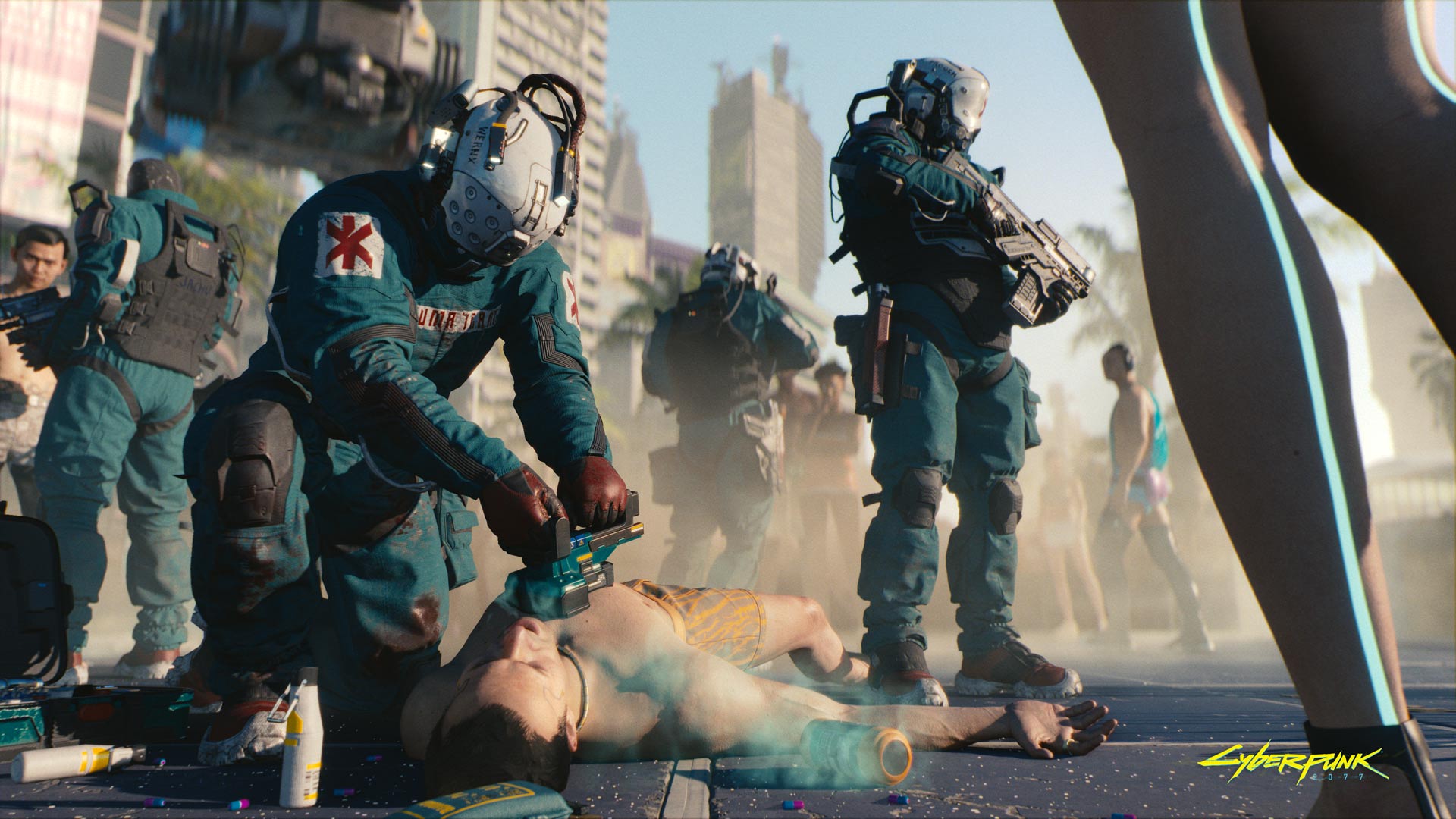In Terms of Crunch, ‘Cyberpunk 2077’ Is Already a Failure

Credit to Author: Emanuel Maiberg| Date: Fri, 17 Jan 2020 17:27:43 +0000
Yesterday, developer CD Projekt Red announced that RPG fans will have to keep waiting for one of the most anticipated games of the last few years. Cyberpunk 2077, which was scheduled for release on April 16, it said, is being delayed to September 17.
Fans of The Witcher 3, sprawling RPGs, and dystopian fiction were disappointed to see the promise of the ambitious game, which they've been daydreaming about since it was first announced in 2012, slip out of reach. I know people who had to reschedule vacation days they planned to use to marathon through Cyberpunk 2077. Hell, I don't even like The Witcher 3 but I was disappointed if only because I'd have to wait a few more months to finally dig into what is sure to be one of the most talked about games of the year.
However, shortly after this announcement, CD Projekt Red held a Q&A session with members of the press where its president and CEO Adam Kiciński made clear that it's Cyberpunk 2077's development team that will pay the heaviest price for the delay. They would pay with crunch, the grueling, unfair labor practice all too common in the video game industry, in which game developers work impossibly long hours and weekends to the detriment of their physical and mental health, in order to finish a game.
"To some degree, yes—to be honest," Kiciński said when asked if Cyberpunk 2077's development team would have to put in crunch hours. "We try to limit crunch as much as possible, but it is the final stage. We try to be reasonable in this regard, but yes. Unfortunately."
CD Projekt Red has a reputation for crunch, and last year told Kotaku that it would try to be "more humane" to its workers during Cyberpunk 2077's development. Marcin Iwiński, the company's cofounder, told Kotaku that it planned to do this with a “non-obligatory crunch policy," meaning it wouldn't force people to crunch, and by not frowning upon workers who needed to take time off. As Kotaku noted at the time, that's a policy that's easier to say than implement. Just because something isn't mandatory doesn't mean workers don't feel the pressure to do it. Unlimited vacation days, for example, are not that unlimited in practice.
The fact that shortly before release the company decided to delay the game for five months, and that its CEO has no problem admitting that these will be five months that will require workers to crunch, indicates otherwise.
Other parts of the Q&A session give us clues to how CD Projekt Red reached this point of failure, and its leadership's contradictory thinking about this failure. Much like The Witcher 3, Cyberpunk 2077, is a huge, sprawling RPG that gives players some degree of agency, choices that they can make to impact the world in different ways, and which will give different players who make different choices meaningfully different experiences. That's an enticing promise if you're the type of player who likes to be immersed in a fictional world, but it also makes Cyberpunk 2077 especially complex.
As Kiciński explains, Cyberpunk 2077 is currently "complete and playable, but there’s still work to be done. Night City is massive—full of stories, content and places to visit, but due to the sheer scale and complexity of it all, we need more time to finish playtesting, fixing and polishing."
Essentially, at this stage of development, CD Projekt Red has a detailed view of what the final product looks like, but is testing it over and over again, likely with the help of a dedicated QA team (which notoriously see some of the worst effects of crunch), in order to achieve what it considers an acceptable level of bugs in a game it ships.
I've seen this stage of game development up close, and it was clear to me that there's no way to minimize the amount of work it takes. It's a meticulous, arduous process that made me think it's a miracle that any big budget video games get finished at all. It's just a question of who has to pay that price. Usually, it's the workers who pay it by crunching, as opposed to leadership and those who stand to profit most from the game's success.
In the case of Cyberpunk 2077, it appears that it is once again the development team that will pay the price. At one point during the Q&A, Kiciński is asked if he has the right team in place to see the game through or if he will need more developers.
"In terms of the team—we are good," he said. "We have a team which works well. We really are in the final phase. Of course, we always do some hiring—for future projects, but in terms of the Cyberpunk 2077 team, we are good."
Cyberpunk 2077's development team is facing five months of development that according to Kiciński himself will require them to crunch. When asked if they could use more help, he shrugs it off and says that they're good. We don't know what it's going to take to finish Cyberpunk 2077, but this is the standard management playbook: get yourself into a jam via poor project management and financial commitments, and then throw the only lever you have left: make employees solve the problem by working longer and harder.
This article originally appeared on VICE US.